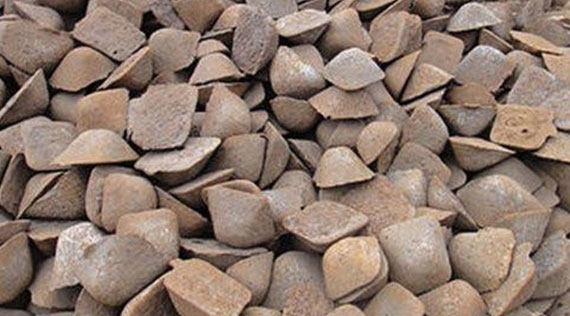
Export prices for Brazilian pig iron fell slightly in August, fluctuating between $400-405/t, compared to $400-410/t in July. Market participants do not expect prices to rise in the short term, according to Kallanish.
The exemption of Brazilian pig iron from US tariffs in the short term did not revive the market situation. The market was relatively quiet, and trade with the US remained limited. US buyers, awaiting resolution of the tariff situation, purchased cheaper Ukrainian pig iron.
It should be recalled that on August 7, the US imposed a cumulative 50% duty on Brazilian goods, but cast iron was excluded from the list of goods subject to tariff restrictions. This decision is positive for the local market, as in the first half of this year, Brazil sent 88% of its total cast iron exports to the US – 1.62 million tons out of a total of 1.85 million tons.
Amid this, Brazilian cast iron export figures were extremely volatile. In July, exports of the product grew by 57% compared to June, reaching 555,000 tons. At the same time, this figure plummeted to 288,400 tons the following month. This sharp decline is due to the fact that exporters shipped August volumes to the US back in July to avoid tariffs that were ultimately never imposed.
According to Kallanish, Brazilian pig iron exports to the US fell by 60% in August compared to July, to 196,500 tons. As a result, Brazilian pig iron was partially redirected to Europe and Asia at $437/ton and $502/ton FOB, respectively.
It should be noted that total pig iron production in Brazil in July amounted to 2.18 million tons, which is 2.3% lower than in June. Expectations of the introduction of duties prompted Brazilian producers to reduce production volumes.
The Black Sea pig iron market is currently virtually non-existent. Prices on a Black Sea FOB basis stabilized at $311/t in late July and early August. The market lull is due to weak demand from Turkey and India. Therefore, Russian exporters have focused on sales in the Far East. At the same time, there were no offers of Ukrainian pig iron on the Black Sea market – our exports are now going to the US.
The Turkish pig iron market is experiencing a downturn. Domestic pig iron production in the country amounted to 5.3 million tons in January-July, which is 12.5% less than in the same period last year. In July, production reached 780,000 tons (-9.3% y/y).
At the same time, imports of products increased sharply. According to TUIK, imports of cast iron to Turkey in July increased by 33% compared to June, reaching 270,100 tons. This trend was expected, as Russia redirected its pig iron supplies to the Turkish market after exhausting its 700,000-ton quota for supplies to the European market in the first half of the year.
According to Metallplace, pig iron prices on the Indian market in August ranged from $348 to $350/t, which is 6% or $23 lower than in July.
It should be recalled that average prices for Brazilian pig iron in July fluctuated at $400-410/t. This market was “frozen” in July due to expectations of US tariffs, which, after lengthy verbal battles, were scheduled to be introduced on August 7, although pig iron was ultimately excluded from the tariffs.
Global pig iron production in January-July 2025 decreased by 1.1% compared to the same period last year, to 813.7 million tons. The largest cast iron producing countries at the end of the period were China – 505.83 million tons (-1.3% y/y), India – 89.24 million tons (+7.7% y/y), and Russia – 34.8 million tons (-0.4% y/y).